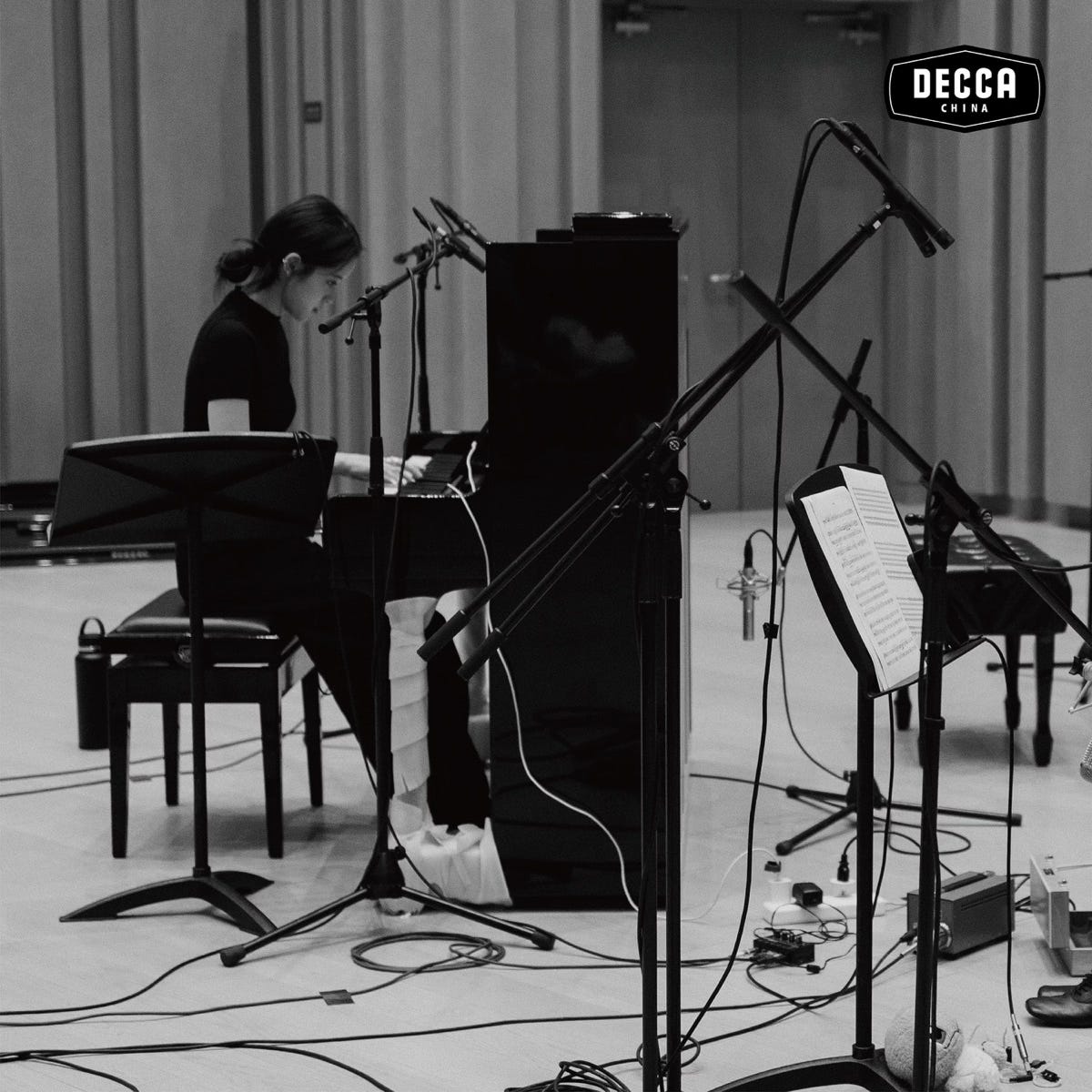A Love Letter from Taiwan's Princess of Cello
Taiwanese prodigy Nana Ou-Yang leaves pop and returns to her roots.
Unless you’re into Mandopop or Chinese romance films, Nana Ou-Yang is probably not on your radar. But her latest release—Love Letter EP—is a good reason for fans of relaxing, uplifting “New Age” instrumental music to get to know her.
Ou-Yang comes from a celebrated Taiwanese family of musicians. She started playing guitar, piano, and cello at the ages of four, five, and six respectively, and began winning prestigious awards before she turned twelve: “1st place winner in cello and 2nd place winner in piano in the Wen-Hua Taiwan Cup Music Competition, 1st place in Grand Tainan National Music Competition in both cello and string quartet categories, and 1st place winner in the National Music Competition of Taiwan.” She kicked off an acting career two years later, playing a cellist (fittingly) in the Chinese film Beijing Love Story, and she has been in seven movies since, including the 2017 sci-fi cyberpunk action flick, Bleeding Steel, starring Jackie Chan.
After her debut album 15—a compilation of classical pieces from Mendelssohn, Schubert, Rachmaninov, and more—and her 2017 (awkwardly named) Cello Loves Disney, she signed with Universal Music and basically turned into a pop star. No doubt, she has a beautiful voice that works just fine over simple pop tracks, but those curious what kind of original music this young, classically trained prodigy could write if she stayed true to her roots have been left waiting, wanting—and probably giving up any hopes of ever getting it in the ten years since Ou-Yang’s classical recording debut. But now, finally, we get a taste of Ou-Yang’s serious, artistic and creative power with her Love Letter EP.
Mind you, it is just a taste: four tracks clocking in at a mere fifteen minutes. But time passes differently in that fifteen-minute mini-universe of Ou-Yang’s creation. And, as beautiful as these pieces are, perhaps more importantly, they signal what could be a welcome new direction for the twenty-four-year-old’s career, out of the shallows of pop and into the depths of a sound seemingly truer to herself.
Right out of the gate, we get something we haven’t had enough of from Nana lately: gorgeous and unadorned solo cello. Bowing across multiple strings, she outlines chords and melody all by her lonesome, and the sparseness sounds huge. (Counterintuitive as it may seem, it’s simple physics: There is only so much frequency space on a record, and the more things you add to that space, the smaller each thing sounds.)
If you’re a “New Age” fan, then you know vocals are not super common in this genre, and you may just do a double-take when Nana starts singing just before the one-minute mark. It’s a beautiful if unexpected little melody line, and it may leave listeners wanting more vocals on this release as a whole. Few artists can call on such a diverse array of talents, and it’s nice to hear Ou-Yang putting them to work in such a cool, creative way.
Nor do the interesting, ear-bending innovations stop there. Nana integrates her guitar skills, playing plucked (or pizzicato) slides up the cello neck, creating a billowing, woody tone that fits this song—and this EP—perfectly. And whereas in the first half of the track, Nana uses her voice merely to follow the cello melody, in the second half, the two diverge, and it’s awesome. She plays simple, low chords on the cello and takes to outlining higher melodies with her voice.
The next track, “Hummingbird,” is one that fans of Philip Glass, Paul Leonard-Morgan, and the like will enjoy. Ou-Yang arpeggiates vaguely spooky chords, reminiscent of the Tales from the Loop TV show soundtrack. Here, we get multitracked cello, with bowed and plucked bass parts undergirding the melody, and a high, very faint held note that—when the rest of the music momentarily drops out—sounds a bit like a patient flatlining. We then get the first of Nana’s gorgeous piano playing on the record, and more of it on the next track, “Turtle.” (Although the “live in studio” YouTube videos show another pianist, I believe Nana plays these parts on the EP, as she alone is credited.)
Why it’s titled “Turtle” is anyone’s guess, but it is a comparatively relaxed and bright piece, evoking the image of that happy little creature sunbathing on a rock in a peaceful pond. Right before the three-minute mark, the cello picks up a new and unexpected melodic direction, using pedal tones to push the song to as-yet unexplored heights. For about the next minute, piano and cello melodies dance in and out of each other before slowly lilting down for another rest. It’s fantastic.
But perhaps the prettiest piece on Ou-Yang’s little offering is the closer, “Nocturne.” The pizzicato cello is back, and this time with a more sharply articulated and downtrodden melody line, the saddest on the EP. The high, mellow piano accompaniment is as ethereal as anything from Alexandra Stréliski, and it climbs and falls alongside the cello without ever stealing the spotlight. That is, until the 2:37-mark, when the tables dramatically—nay, violently—turn. Nana lets loose a wave of notes, like a firework going off just before quieting down and bringing Love Letter to an end.
Is Love Letter a taste of things to come, Ou-Yang’s coming-of-age release? Will she embrace this more mature sound long-term? Or will she give up the gravitas and try hanging on to the teeny-bopper image through the back half of her twenties? Here’s hoping for the first.
Did you listen to this album? What did you think? Let me know in the comments below.






